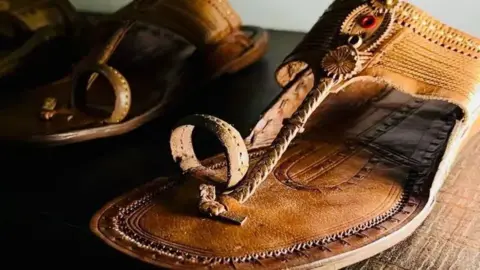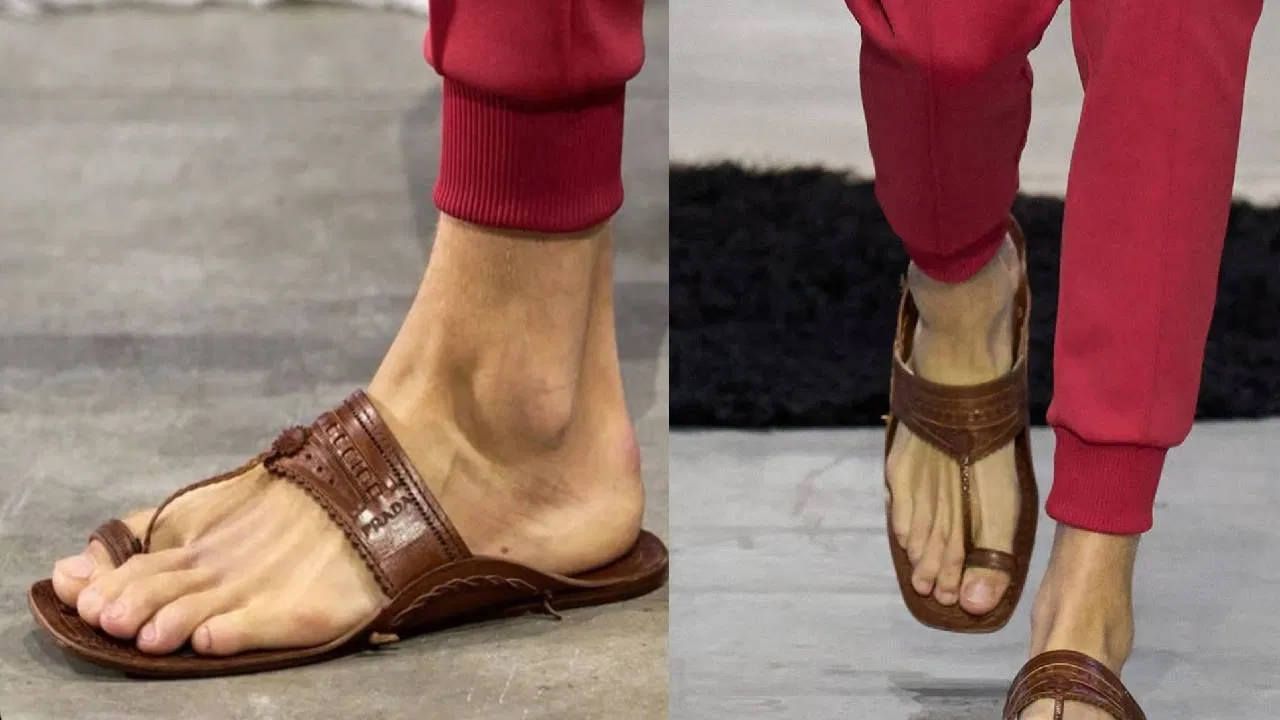Introduction
Global fashion house Prada has officially acknowledged that its recently unveiled leather sandals were inspired by India’s traditional Kolhapuri sandals, after a wave of criticism from Indian consumers, artisans, and trade bodies. The controversy erupted after Prada showcased the design during the Spring-Summer 2026 Menswear show at Milan Fashion Week without crediting the design’s cultural origin.
Backlash Over Cultural Appropriation

The sandals featured a distinctive braided leather pattern and open-toe structure nearly identical to the Kolhapuri chappals, handcrafted by artisans from Maharashtra and Karnataka. Although Prada described the product as “leather footwear,” it failed to mention India as the source of inspiration—prompting strong reactions online and offline accusing the brand of cultural appropriation.
Among the voices raising concern was the Maharashtra Chamber of Commerce, Industry & Agriculture, whose chief wrote to Prada, emphasizing that the design was commercialized without recognizing generations of artisan work that have sustained this traditional craft.
Prada Responds
Responding to the criticism, Prada released a statement to the BBC, acknowledging that their sandals were “inspired by traditional Indian footwear.” A spokesperson added that Prada has always celebrated “craftsmanship, heritage and design traditions.” The company confirmed it is in contact with the Maharashtra Chamber of Commerce to begin a dialogue around the issue.
Lorenzo Bertelli, Prada’s Head of Corporate Social Responsibility, wrote back stating that the sandals were still “in the early stage of design,” and the brand was open to “meaningful exchange with local Indian artisans” through upcoming meetings.

The Kolhapuri Legacy
Kolhapuri sandals are a proud legacy of Indian craftsmanship, originating from the town of Kolhapur in Maharashtra. Dating back to the 12th century, these handcrafted sandals are made of leather and are designed to endure India’s hot climate. In 2019, the Indian government awarded them Geographical Indication (GI) status, a mark of authenticity similar to Champagne or Darjeeling tea.
As per the World Trade Organization, a GI tag certifies that a product originates from a specific region and possesses qualities or a reputation linked to that origin.
Local Reactions
While the global recognition stirred pride among some Kolhapuri artisans, many expressed disappointment over the lack of credit and financial compensation. “These sandals are made with the hard work of leather workers in Kolhapur. Don’t take advantage of others’ labour,” artisan Prabha Satpute told BBC Marathi.

Adding to the controversy was the speculation over pricing. While Kolhapuri chappals retail for a few hundred rupees in India, Prada’s luxury sandals typically sell for £600–£1,000 in the UK. Though Prada’s website has yet to reveal pricing, the disparity has drawn ire.
Indian industrialist Harsh Goenka criticized the economic imbalance, tweeting that “global brands cash in on our culture, while artisans make almost nothing.”
Not the First Time
This incident isn’t isolated. At the 2025 Cannes Film Festival, Gucci described a sari worn by Bollywood actress Alia Bhatt as a ‘gown’, sparking accusations of ignorance. More recently, a viral TikTok trend incorrectly labeled the Indian dupatta as a “Scandinavian scarf.”
Despite the criticism, some in Kolhapur viewed the attention as validation. “Artisans are happy that someone is recognizing their work,” said businessman Dileep More in an interview with Reuters.
Conclusion

As global brands expand their reach, sensitivity to cultural roots and artisan contributions becomes increasingly crucial. Prada’s acknowledgment of Kolhapuri sandal heritage may serve as a turning point—one where global fashion learns not just to adopt but also to respect and empower the communities that inspire them. Whether Prada follows through on its promise for a meaningful artisan dialogue remains to be seen, but the world is now watching closely.
Explore More:
External Sources:
